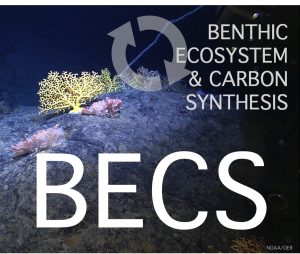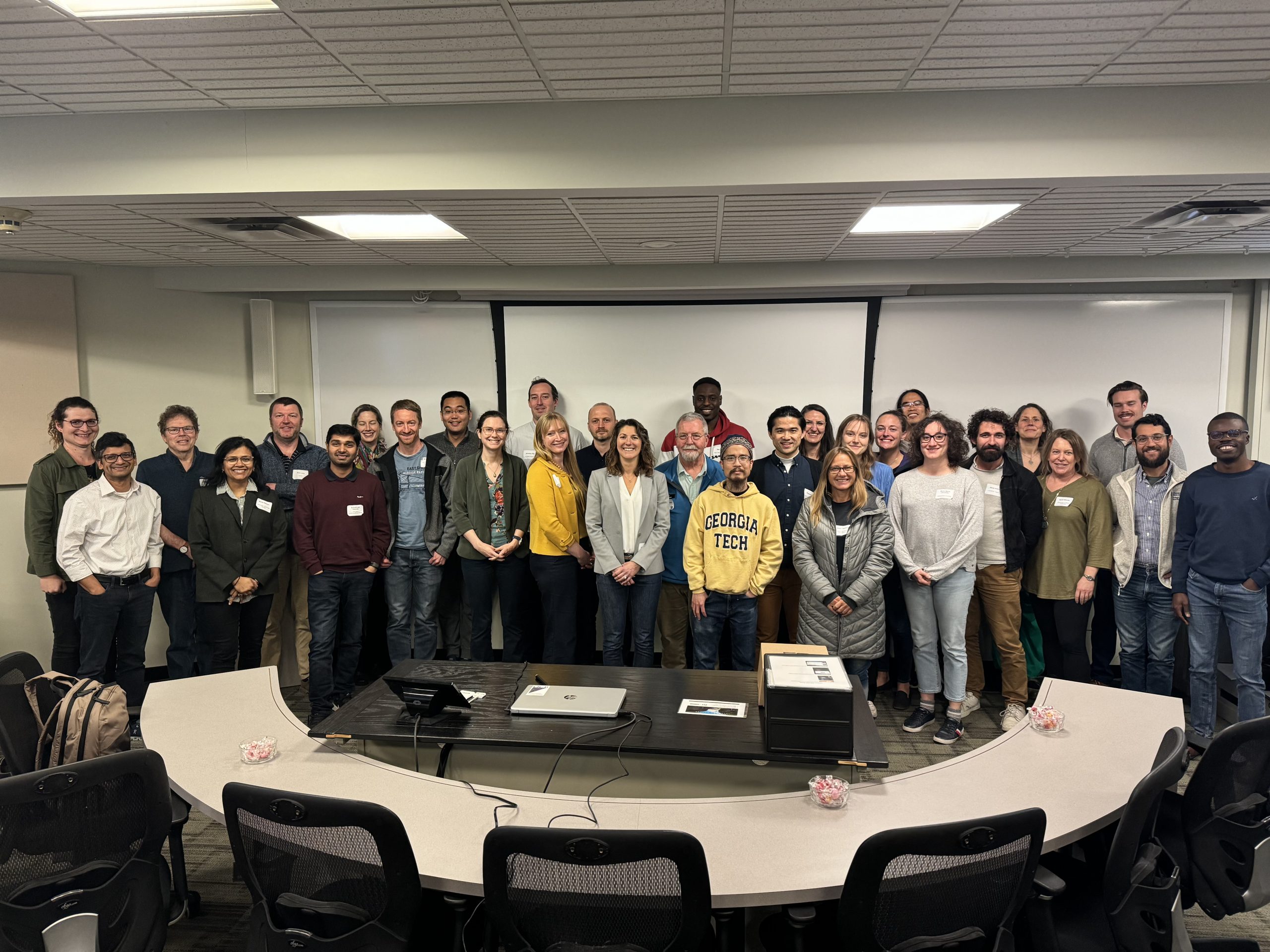The BECS working group is aimed at understanding the carbon cycle and ecosystems within the land-to-ocean aquatic continuum by improving our understanding of related benthic processes and their representation in ocean and climate models. Benthic sediments (i.e. the seafloor) serve as the only long-term (century-to-millennial) sink of ocean carbon. Despite their critical role in the global carbon cycle, our understanding of coastal and global carbon dynamics is hindered by both a paucity of data and simplistic representations of seafloor biogeochemistry and ecosystems in models. This represents a key deficiency in future projections of the global carbon cycle and our quantification of the role of the benthos as a long-term carbon sink. Despite these uncertainties, many proposed carbon dioxide removal (CDR) and “blue carbon” climate mitigation strategies rely on ocean sediments as carbon sinks.
The coastal oceanography and global modeling communities currently operate in separate silos. This working group will be an important step forward to bridge the knowledge gap left by the lack of integration between coastal and global efforts. We hope to identify gaps in our understanding of key processes in benthic communities across space in the coastal ocean. We will bring together a community of observationalists and modelers to integrate knowledge on coastal and open ocean benthic fluxes and biota, and coastal water column nutrient fluxes, which can be influenced by benthic-pelagic interactions. To that end, we have the following goals:


David Burdige (Old Dominion University)
Marta Maria Cecchetto (Heriot-Watt University)
Isa Elegbede (Brandenburg University of Technology, Germany)
Talia Evans (UC Santa Barbara)
Lisa Herbert (Florida State University)
Heidi Hirsh (Cooperative Institute for Marine and Atmospheric Studies (NOAA AOML/University of Miami))
Xinping Hu (Texas A&M University-Corpus Christi)
Gennadi Lessin (Plymouth Marine Laboratory)
Lisa Levin (Scripps Institution of Oceanography UC San Diego)
Kanchan Maiti (Louisiana State University)
Sairah Malkin (Horn Point Laboratory/ University of Maryland Center for Environment Sciences)
Sarah Mincks (University of Alaska, Fairbanks)
Stanley Nmor (Laboratoire des sciences du climat et de l'environnement)
Anh Le-Duy Pham (University of California, Los Angeles)
James L. Pinckney (University of South Carolina)
Subhadeep Rakshit (Princeton University)
Nicholas Ray (University of Delaware)
Christopher Somes (GEOMAR Helmholtz Centre for Ocean Research Kiel)
Aron Stubbins (Northeastern University)
Cleuza Leatriz Trevisan (Universidade Federal Fluminense)
Dormarine Kwaboah Tuffour (University of Cape Coast)
Gabriel Venegas (University of New Hampshire)
Hang Yin (Texas A&M University-Corpus Christi)
| Title/Topic | Date | Speakers | Link to register or watch recording |
|---|---|---|---|
| Elemental Cycling | 2023 Nov. 28 | Speakers: Kanchan Maiti (LSU) "Oxygen and carbon dynamics in Mississippi river influenced shelf sediments", Chris Somes (GEOMAR) "The impact of reductive sedimentary iron release on changing ocean biogeochemistry simulations of the Anthropocene" | https://youtu.be/jKMHF54CiE8 |
| Benthic ecosystems | 2023 July 11 | Clare Woulds, University of Leeds Second speaker TBA | https://youtu.be/07hTcAMk-ik |
| Oxygen fluxes | 2023 May 9 | Matt Long (WHOI) "Benthic Oxygen Metabolism: How Technology, Physics and Fluxes Advance Marine Biogeochemistry" Jim Moffett (USC) "Bottom water oxygen determines cross-shelf transport of iron - or does it?" | https://youtu.be/NI5Us3KtrTk |
| Introduction to Working Group and Overview of Benthic Ecosystem and Carbon Synthesis | 2023 March 13 | Cristina Schultz and Jessica Luo introduced the BECS working group in the context of past OCB efforts. Jack Middelburg (Professor of Geosciences at Utrecht University, The Netherlands) is an international leader on ocean biogeochemical cycles, particularly sedimentary inorganic cycles and benthic ecosystems. | https://youtu.be/4E5j6f4ViKg |